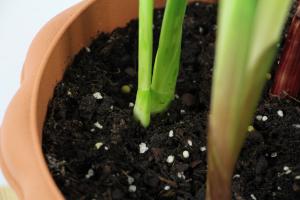How to Catch Rainwater to Water Plants
Watering plants can be a challenging task, especially during hot and dry weather. One solution to this problem is to catch and store rainwater, which is an inexpensive, eco-friendly and efficient way to water your plants. Here are some tips on how to catch rainwater for your plants:
Choose the Right Container
The first step to catch rainwater is to choose the right container. You can use any container that can hold water such as plastic barrels, buckets, or old trash cans. Make sure that the container is clean, has a tight lid, and is located in a place where it can catch as much rainwater as possible. It is also a good idea to elevate the container to make it easier to access the water and avoid contamination.
Position Your Container Correctly
The position of your container is crucial in catching rainwater. It should be located in an area that receives a lot of rain, such as near the roof, under a gutter or downspout. Make sure that the roof is clean and free of algae, molds, or any other debris that can contaminate the rainwater. You can install a filter system to keep out debris such as leaves and twigs, and prevent clogging of the gutter or downspout.
Catch and Store Your Rainwater
Once your container is in place, it's time to catch and store your rainwater. You can use a downspout diverter to direct water into your container or place a screens over the opening of your container to act as a filter. To prevent mosquito breeding, it is recommended to use mosquito dunks that contain bacteria which target mosquitos in their larval stage. This is a safe and natural way of controlling mosquito populations around your container.
Use Your Rainwater
Now that you have your rainwater stored in your container, it's time to use it on your plants. You can use a watering can or a hose to water your plants. For best results, allow the water to warm up to room temperature before using it. This will ensure that the water is at the right temperature for your plants and will decrease the chances of shock to your plants.
Conclusion
Catching rainwater to water your plants is an easy and efficient way to save money and preserve water. By choosing the right container, positioning your container correctly, catching and storing your rainwater, and using it on your plants, you can give your plants the water they need without overspending or wasting precious resources.

 how many times do yo...
how many times do yo... how many planted tre...
how many planted tre... how many pine trees ...
how many pine trees ... how many pecan trees...
how many pecan trees... how many plants comp...
how many plants comp... how many plants can ...
how many plants can ... how many plants and ...
how many plants and ... how many pepper plan...
how many pepper plan...
































